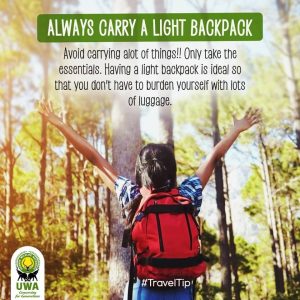GORILLA SAFARI ADVICE
We are so lucky to represent some of the most highly thought of gorilla safari experts in the world. They have done these treks over and over. They are totally committed to conservation and responsible tourism, and they can tell you everything you need to know when it comes to gorilla safari advice. When to go, what to pack, vaccinations needed, how far in advance to book. You name it, they know it. Here are some of their top tips below, as well as from inspired travellers who have gone with them.
All the guides that we use are the best of the best. Some safari companies are more about offering a copper bath, but we are more about the experience, the wildlife viewing and the quality of the guides first. And our clients are too. That is not to say that luxury lodges and services are not available, they certainly have their place in a location such as this, just that our priority is always in providing luxury experiential travel. I would always recommend that people take more than one visit to the mountain gorillas. This is because every time is so very different from the others, after your first visit you will relax significantly and perhaps spend less time so focused on taking pictures but actually absorb the experience a lot more.
Gorilla tips
“When you see the gorillas, be super quiet and submissive. The gorillas largely don’t care about your presence much, unless people get out of line, and I’m sure if anyone were to cross that, the gorillas would have something to say about it. But the wardens and trackers ensure that you stay where you should be, and behaving as you should be.”
Photography tips
“SLR cameras are the best for these trips although a lot of people don’t want to carry it. I wouldn’t obsess with long zoom lenses because you are going to be so close to them. Some people turn up with a 200-300 mm zoom on an SLR and then find out that they can’t get far enough away to take photographs. If I had to choose between a mid-zoom, a 24-70 or a 70-300, I would take the 24-70.”
Footwear tips
“Boots with a high ankle support are important, as this can be the difference between a rolled ankle or not, as this is a trekking experience. I have seen socks and sandals on a trek. I don’t get that really.”
HEALTH & SAFETY ON GORILLA SAFARIS
HEALTH
Visit your GP six to eight weeks before departure to ensure you have all the necessary vaccinations and medication. Make sure you bring all medications you might need with you, as supplies are not guaranteed in relevant countries, and gorilla tracking takes place in fairly remote areas. Bring your prescription, too.
Malaria is present in all the countries inhabited by gorillas, so speak to your GP or travel clinic about whether to take medication or not depending on the specific region you are visiting. Wear long sleeves and trousers and use your mosquito nets. Yellow fever is also a risk in these countries; most request a vaccination certificate on entry.
Tse-tse flies are around, and have a painful bite, as well as carrying sleeping sickness. They are attracted to the colour blue, so don’t wear it.
As you will be on the move a lot on a gorilla safari holiday, carry hand sanitiser to use before meals. Be sure to wash fresh produce well before eating and avoid raw foods in restaurants. High end lodges around the national parks usually have an excellent standard of food.
Only drink bottled water and avoid ice in drinks.
Avoid swimming in fresh water, as water borne diseases such as Schistosomiasis (Bilharzia) are a threat. This included just paddling.
SAFETY
Rwanda and Uganda are generally safe countries to travel in, with relative political stability, but do keep up to date on the FCO website. There are exceptions on the border of Democratic Republic of the Congo, but tour operators will keep you away from unstable areas.
DRC itself is currently suffering from unrest across the country; the UK Foreign and Commonwealth Office has travel warnings in place. In 2018 Virunga National Park, the habitat for DRC’s mountain gorillas, closed to tourism following violent attacks. It is expected to reopen in 2019; speak to your tour operator for more details.
Central African Republic also has FCO travel warnings, although Dzangha-Sangha Reserve remains open for tourists and gorilla tracking.
Homosexuality is, sadly, illegal in Uganda and Cameroon, and LGBT couples are at risk of discrimination and abuse if they are affectionate in public.
